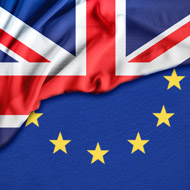Animal medicines industry ‘increasingly concerned’ about its future

Trade and exports after Brexit were a continued cause for concern.
Animal medicines companies are becoming increasingly concerned about the future of the industry after Brexit, according to new research.
The National Office of Animal Health’s (NOAH) second ‘Brexit Barometer’ report shows that increasing levels of complexity and a lack of government progress are key contributors to the rising concerns.
To benchmark current opinion, NOAH asked attendees to its November Brexit Conference how optimistic they felt about six key topic areas. The organisation then compared that sentiment against its first Brexit barometer, published in May 2017.
The six key topic areas were: research and development, bringing new products to market, post-licensing controls for the overall market, animal health and welfare, public health and food production, and trade and exports in relation to animal health.
The report found that public health and food production remained the most optimistic of the six areas overall, with more than a third of respondents (38 per cent) feeling ‘optimistic’ or ‘very optimistic’. Trade and exports were a continued cause for concern, with around a quarter of respondents (23 per cent) feeling ‘very pessimistic’, in comparison to 0 per cent who previously felt this negative.
NOAH also gathered feedback from delegates on the level of progress being made by the government against each of the areas. Eighty-four per cent of respondents considered that government is not progressing well with negotiations overall.
NOAH chief executive Dawn Howard said: “Our second Brexit barometer paints a picture of growing uncertainty, which we as an industry need to address. Whilst government progress is a major contributor to the rising concerns, we cannot be complacent and simply wait for action from government.
She continued: “Recognising key areas of concern is of paramount importance so that we are ready to take action to achieve success within these areas. Safeguarding a skilled workforce, championing the UK jobs market and looking ahead to what may be in store with regard to regulatory changes and licensing frameworks are all possible even at this early stage.
“We will continue to work closely with our members and stakeholders to ensure that we make Brexit as successful as we possibly can for the animal medicines industry.”



 The latest
The latest